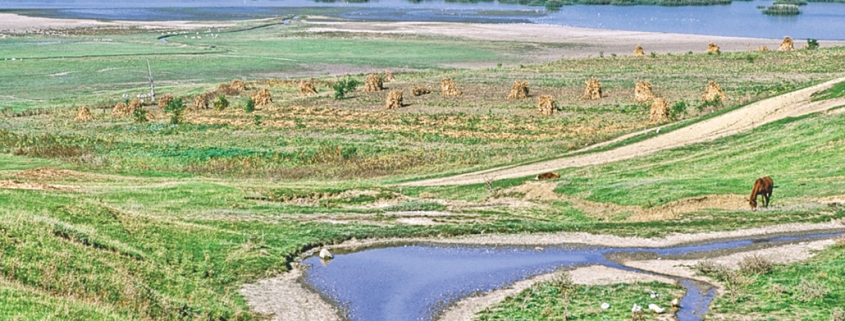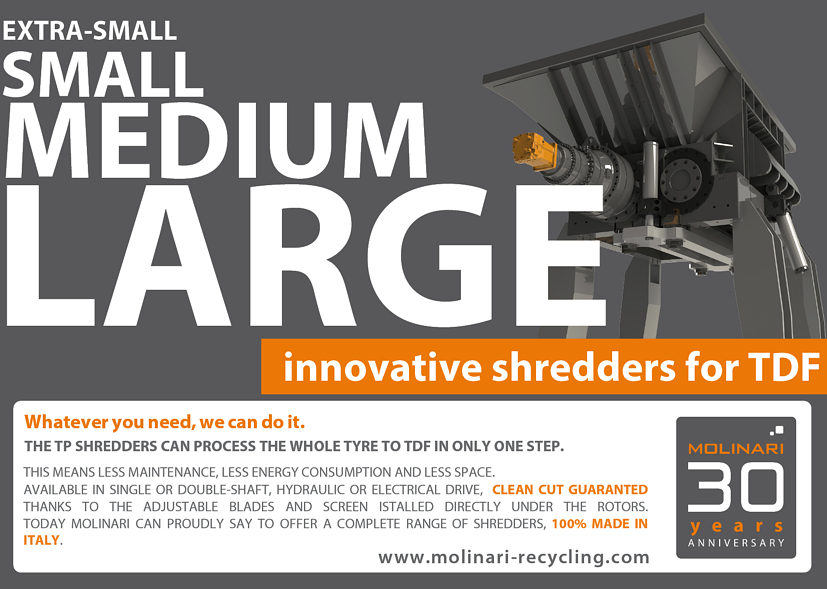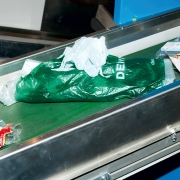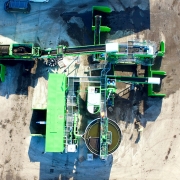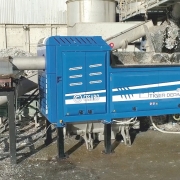Moldova: The Chisinau Solid Waste Project
If approved by public financiers and an international donor, the project will significantly improve the waste management situation of the Moldavian capital Chisinau.
According to the information provided by the European Bank for Reconstruction and Development (EBRD), the Chisinau solid waste project comprises a sub-sovereign loan of up to 10.5 million Euro to Regia Autosalubritate, a municipal solid waste management company in the Republic of Moldova. The municipality will guarantee the loan and is expected to be co-financed with an EIB (European Investment Bank) loan of up to 10.5 million Euro and an investment grant of up to 5.0 million Euro from an international donor.
The investment program includes
■ closure of the existing dump site in Ciocana in the City of Chisinau;
■ re-opening and upgrading of the currently non-operational landfill site to EU compliance, including associated infrastructure (leachate treatment plant, landfill gas collection, access road) – the site is located in Tintareni village (Anenii Noi District), 30 kilometers south-east of Chisinau;
■ rehabilitation of the existing waste collection and transportation;
■ upgrade of the transfer station and introduction of a waste sorting line.
The project is part of the Green Cities Framework (GrCF) – a strategic and multi-project approach targeting environmental issues in selected large cities in EBRD’s countries of operation. “The primary goal is to achieve significant environmental improvements and promote the green transition quality in Chisinau,” the bank informed. “The GrCF also aims to build necessary capacity and facilitate better coordination and buy-in among various stakeholders within the relevant cities in order improve the governance, operational efficiency and financial sustainability of the targeted investments and initiatives. These objectives are supported by the development and implementation of a city-specific Green City Action Plan (GCAP) identifying and prioritizing environmental challenges and ways to address them through targeted investments, services and policy instruments.”
This is not the only initiative. A project, titled “Modernisation of local public services in the Republic of Moldova” and commissioned by the German Federal Ministry for Economic Cooperation and Development, cooperates with national partner institutions to strengthen the planning and implementation capacities of local authorities, German GIZ Deutsche Gesellschaft für Internationale Zusammenarbeit GmbH gave account. It provides assistance in developing the legal and institutional framework for regional development in order to improve local public services in rural areas, in four sectors:
■ Water supply and sanitation
■ Solid waste management
■ Regional and local roads
■ Energy efficiency of public buildings
As reported, the project supports investments in infrastructure, as prioritized in a participatory process. Its measures include the provision of training in regional planning and programming, public procurement, corruption prevention and the management of local public services.
Moldova’s waste situation
According to information provided by media and other sources some years ago, the about three million citizens of the country produce around 2.5 million tons of waste annually. Between 2006 and 2012, the annual volume of waste processed presumably dropped from 840,000 tons to 470,000 tons. The rest is sent to 1,867 landfills.
A research of the World Bank found out that along with the increase of the level of income of the population the rate of waste generation per capita rises as well, which in rural areas usually is 0.3-0.4 kg/capita/day and 0.9 kg/capita/day or higher in urban areas. Out of a total amount of 2,841,000 tons of waste from the activity of enterprises produced in 2008, most of it – about 1,570,000 tons – were represented by waste derived from food processing and beverage industries, 540,000 tons from the extraction enterprises, 249,000 tons from animal breeding. Only 30 percent out of the total amount of production waste was used, 50 percent have been eliminated by storage, while 20 percent were kept on the territory of the enterprises. The country’s law on waste was published in 2016. The National Waste Management Strategy for 2013-2027 was developed according to the Directives of the European Union and approved in 2013, setting waste management goals in line with EU principles. It sets objectives and implementation measures for each waste stream and estimates the costs of these measures at 375 to 470 million Euro for the period.
Investments are gaining momentum
In 2016 and 2017, the Moldavian economy registered a growth rate of four percent. At the end of last year, the government estimated that Moldova‘s economy has chances to grow in 2018 due to the fact that in the road infrastructure development and energy investments are foreseen.
As estimated by Germany Trade and Invest (GTAI), the Republic of Moldova further proceeds with its course of growth. However, according to the analysis, the country falls short of the International Monetary Fund’s expectations. Presumably the dynamic is too low to start a catching-up process with the East European members of the European Union. The parliamentary elections are due in November 2018. Those elections should further the country, which is divided between the EU and Russia. The western givers hope for a more precise positioning towards the EU.
According to the information supplied, the investment activity will presumably gain momentum in 2018, supposes GTAI. It has already been shown in 2017 that due to improved access to external sources of financing public investments have been increased. Apparently, in 2018 an extended skill to implement projects is especially due regarding road infrastructure. The building industry should profit from major public investments. There is the possibility that private investments pursue and hopes are pinned on that. According to GTAI, major challenges are generated especially by corruptions and deficiencies regarding the infrastructure. In terms of cost aspects, export-oriented and foreign direct investments would remain quite attractive.
Photo: pixabay
GR 2/2018

